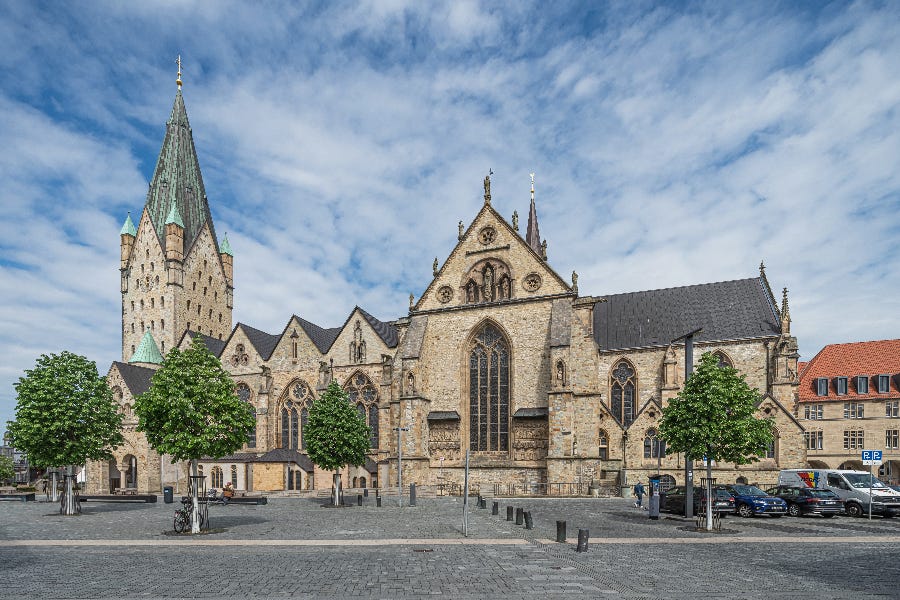A German cathedral chapter apologized this week for hosting a performance featuring semi-clad dancers waving plucked chickens wrapped in diapers.
The chapter of Paderborn Cathedral expressed “sincere regret” May 26 that the performance by the dance ensemble Bodytalk “offended re…

